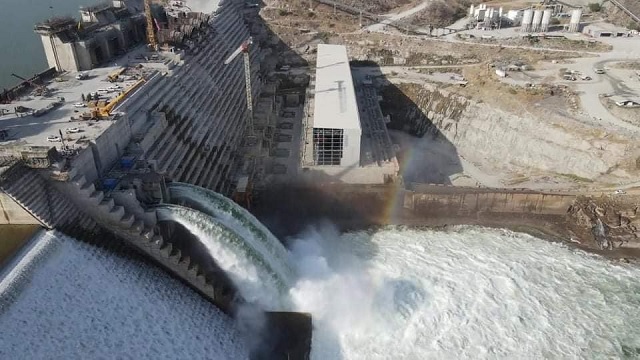
Cairo, Egypt | Xinhua | Egyptian Minister of Irrigation and Water Resources Mohamed Abdel-Ati on Tuesday accused Ethiopia of shirking its obligations toward the Nile Basin countries.
“Ethiopia has no political will to reach any deal about the filling and operation of the Grand Ethiopian Renaissance Dam (GERD),” said Abdel-Ati in an online meeting with Inger Andersen, executive manager of the United Nations Environment Program (UNEP).
They discussed the limited water resources available to Egypt, the negative climate change impacts, and the unilateral measures of filling and operating the GERD.
“As the most populous Arab country, Egypt suffers a shortage of water resources while Ethiopia enjoys enormous rainfalls, renewable groundwater in addition to the Nile River, and the huge amount of stored water behind the dams and in the natural lakes,” said Abdel-Ati.
Egypt is still below the UN threshold of water poverty. The water shortage in Egypt is 13.5 billion cubic meters per year.
Egypt isn’t against the development of Ethiopia and the Nile Basin countries, but development should abide by international laws and respect the concerns of the downstream countries, the Egyptian minister noted.
On Monday, Egypt received an official letter from Ethiopia about starting the second filling of the GERD reservoir.
Egypt and Sudan have referred the GERD issue to the UN Security Council, which is set to convene a discussion on Thursday.
Ethiopia, an upstream Nile basin country, started building the GERD in 2011 and carried out the first phase of filling the dam in July 2020 despite the concerns of the downstream countries Egypt and Sudan, which have repeatedly called for a tripartite binding agreement on the rules of filling and operating the dam.
Over the past few years, tripartite talks on the rules of filling and operating the hydropower dam with a total capacity of 74 billion cubic meters have been fruitless, including those hosted by the United States and the recent ones by the African Union.
*****
Xinhua
 The Independent Uganda: You get the Truth we Pay the Price
The Independent Uganda: You get the Truth we Pay the Price





